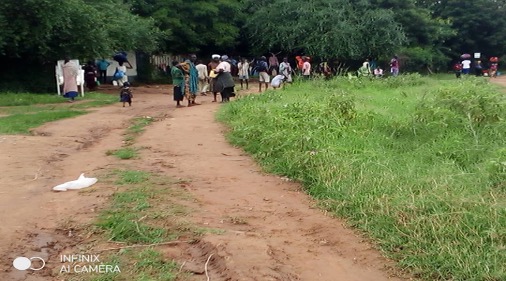
UN experts say violence against civilians fueled by pervasive impunity
Members of the Commission on Human Rights in South Sudan on Tuesday noted that persistent violence against civilians is being fueled by pervasive impunity.
Andrew Clapham and Barney Afako, members of the commission while appearing before the UN Human Rights Council in Geneva, said senior public officials and military officers should be held accountable for serious crimes to bring an end to the gross human rights violations.
“Attacks against civilians persist precisely because perpetrators are confident they will enjoy impunity,” Clapham said.
The commissioners tabled report before the Council which was conducted in South Sudan and the neighboring region throughout 2022 detailing attacks against civilians, systematic sexual violence against women and girls, the ongoing presence of children in fighting forces, and state-sponsored extrajudicial killings.
The commission’s findings describe multiple situations where State actors are the primary perpetrators of serious crimes under South Sudan’s laws, as well as under international law.
It also identifies members of non-State armed groups for having committed serious human rights violations.
“We have documented human rights violations in South Sudan for many years, and we continue to be shocked by the ongoing violence, including horrific sexual violence, targeting civilians, and perpetrated by members of the armed forces, different militia, and armed groups,” Clapham said.
“Last month we again visited the country, where we met in Juba and Malakal with brave survivors who shared their experiences of trauma, loss, and hunger. Faced with persistent cycles of violence and insecurity, many told us they are disillusioned and losing hope,” he added.
Afako said it is hard to imagine peace while State actors continue to be involved in gross human rights violations.
“A true demonstration of the Government’s stated commitments to peace and human rights would involve dismissing the responsible officials and initiating prosecutions,” he said.
The report also raised concern about the escalation of violence in Upper Nile State, where the UN’s protection of civilians’ site in Malakal has been overwhelmed by tens of thousands of new arrivals.
“In two separate events, civilians sheltering in makeshift displacement camps were attacked again, and vital humanitarian aid looted. No responsible institution took timely measures required to protect them, despite the risks of attacks being well known,” it notes.
“The challenge of advancing peace and human rights in South Sudan is very heavy, and international attention and support must not flag,” Afako said.
The commissioners told the Council that South Sudan can be different, and that the 2018 Revitalized Peace Agreement remains the framework to address the conflict, repression and corruption that cause immense suffering and undermine the prospects of peace.
They added that the Agreement also charts a pathway for South Sudanese to make a permanent Constitution that should strengthen rule of law and respect for human rights, thus laying foundations for the country’s stability.
“Long-delayed constitution-making and elections are planned in the next 18 months, but the civic space needed to make these meaningful has virtually disappeared. Activists and journalists operate under threat of death and detention. We demand that the authorities immediately end the harassment of civil society, and protect political space,” it says.
Meanwhile, Clapham said that although the government has announced special investigation committees on several situations examined by the commission, only one such body appears to have carried out inquiries, no reports have been published, and no related criminal trials have taken place.
He added that the commission continued to preserve evidence to enable future prosecutions and other accountability measures.



































